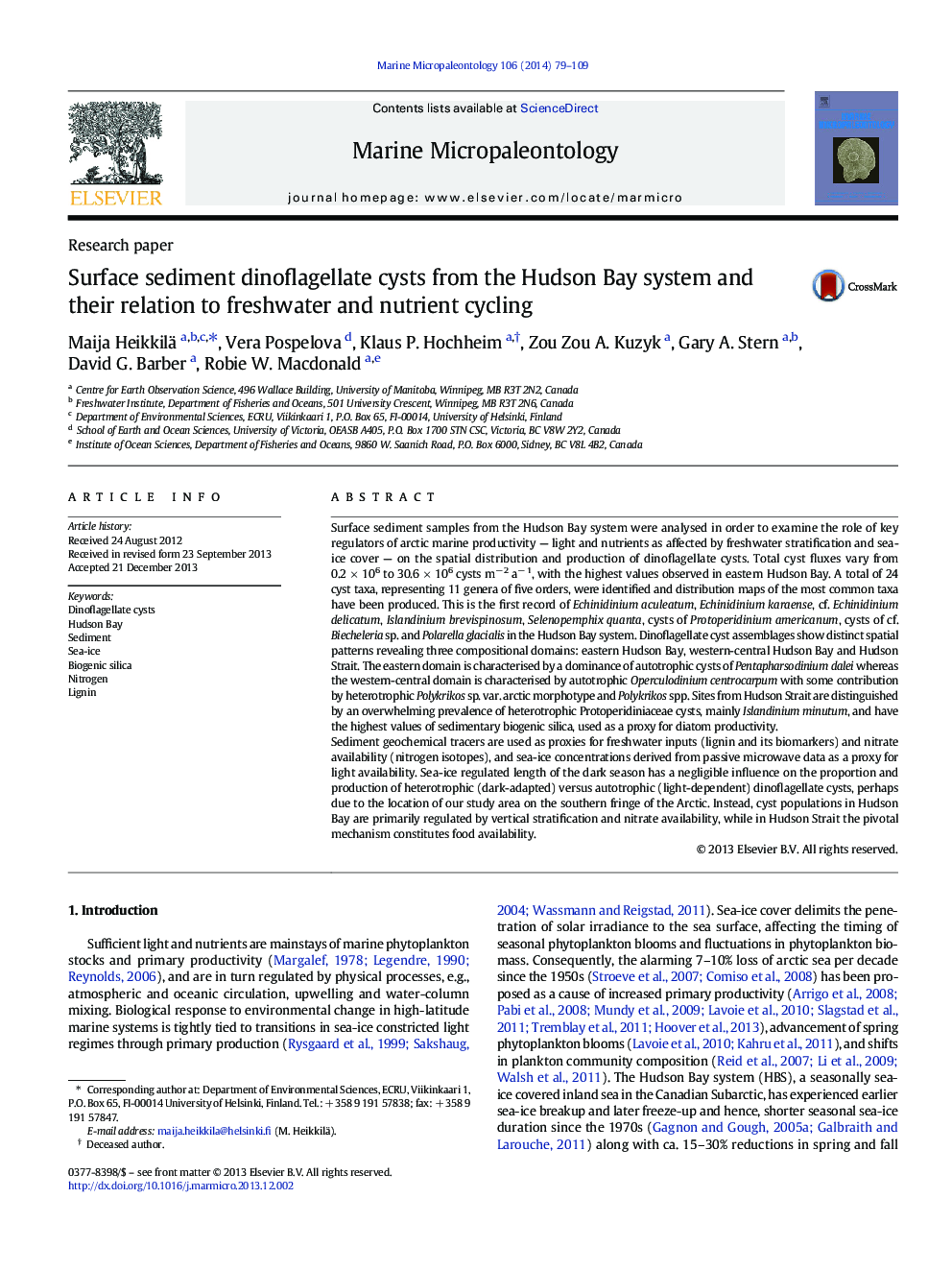| Article ID | Journal | Published Year | Pages | File Type |
|---|---|---|---|---|
| 6448571 | Marine Micropaleontology | 2014 | 31 Pages |
Abstract
Sediment geochemical tracers are used as proxies for freshwater inputs (lignin and its biomarkers) and nitrate availability (nitrogen isotopes), and sea-ice concentrations derived from passive microwave data as a proxy for light availability. Sea-ice regulated length of the dark season has a negligible influence on the proportion and production of heterotrophic (dark-adapted) versus autotrophic (light-dependent) dinoflagellate cysts, perhaps due to the location of our study area on the southern fringe of the Arctic. Instead, cyst populations in Hudson Bay are primarily regulated by vertical stratification and nitrate availability, while in Hudson Strait the pivotal mechanism constitutes food availability.
Related Topics
Physical Sciences and Engineering
Earth and Planetary Sciences
Palaeontology
Authors
Maija Heikkilä, Vera Pospelova, Klaus P. Hochheim, Zou Zou A. Kuzyk, Gary A. Stern, David G. Barber, Robie W. Macdonald,
